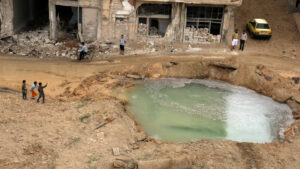Generation Adrift: War, Poverty, and the Uncertain Future Faced by Young People
The image of a lost child, small and bewildered, searching for a familiar face, evokes a deep sense of vulnerability. This vulnerability, unfortunately, reflects the reality of a growing number of young people around the world, particularly in war-torn and poverty-stricken nations. Here, the term “Generation Lost” takes on a new and heartbreaking dimension.
Lost in the Rubble:
War shatters not just buildings, but the very foundation of a child’s life. Education is disrupted, dreams are deferred, and the innocence of childhood is replaced by fear and displacement. Basic necessities like food, shelter, and healthcare become daily struggles. These lost children are robbed not just of their present, but of the tools and resources they need to build a secure future.
The Grip of Poverty:
Even in the absence of war, poverty steals a child’s sense of security. Hunger becomes a constant companion, limiting physical and cognitive development. The luxury of education becomes a distant dream, replaced by the harsh realities of child labor. Their potential, their aspirations, are sacrificed on the altar of survival.
Breaking the Cycle of Loss:
These young people are not a lost cause, but they desperately need support. Investment in humanitarian aid is crucial, ensuring access to food, shelter, and medical care. Educational programs specifically designed for displaced or impoverished children offer a lifeline of hope and opportunity.
Building Bridges, Not Walls:
Mental health services must be readily available, helping young people cope with the trauma of war and the despair of poverty. Creating safe spaces for them to play, learn, and connect with others fosters resilience and a sense of belonging.
A Collective Responsibility:
The responsibility for this generation’s well-being falls not just on their immediate communities, but on the global stage. Developed nations must invest in international aid programs that prioritize education and mental health initiatives in war-torn and impoverished regions.
The lost children of today can become the empowered leaders of tomorrow. By offering them a bridge out of despair, by investing in their futures, we invest in a world where every child has the chance to thrive, regardless of their circumstances. This isn’t just about charity, it’s about building a more just and equitable future for all.


